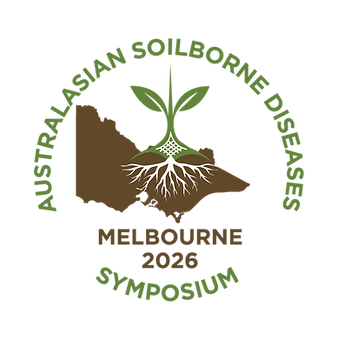
Expand your knowledge and your network in the heart of Melbourne

A focused environment to learn from each other and meet fellow plant pathologists
ASDS is a unique biennial event that brings together researchers, practitioners, and primary producers to explore the latest developments in the diagnosis, prevention, and management of soilborne plant diseases.
Since 1999, ASDS has been a leading platform for promoting integrated disease management and soil health innovations across the region.
ASDS 2026 promises to be dynamic symposium featuring:
A hands-on Nematology Workshop and field trips to showcase real-world applications.
Engaging sessions on trending topics including:
-
Climate Change – Exploring how shifting environmental conditions influence disease dynamics and soil health
-
Advanced Technologies in Soilborne Disease Research – Including remote sensing, AI-driven diagnostics, molecular tools, and data-driven modelling to revolutionise how we understand and manage soilborne diseases
-
Nematology – Advances in nematode biology, diagnostics, and management strategies
-
Horticulture – Disease pressures and integrated solutions across annual and perennial cropping systems
-
Diagnostics, Biosecurity & Surveillance – Cutting-edge tools and frameworks for early detection, containment, and risk mitigation
-
Integrated Management – Combining cultural, biological, and chemical approaches for sustainable disease control
-
Soil Biodiversity & Microbiomes – Leveraging microbial communities to enhance soil health and suppress pathogens
With an expected 120–150 delegates from across Australia, New Zealand, and the Asia–Pacific, ASDS 2026 offers exceptional opportunities to:
-
Connect with leading researchers, producers, and policy-makers.
-
Explore innovations shaping the future of soil health and disease management.
-
Build networks that translate science into on-farm solutions.
We look forward to welcoming you to Melbourne in 2026 for an inspiring and collaborative ASDS Symposium.
On behalf of the Organising Committee
Regards
Drs Tonya Wiechel & Joshua Fanning
Co-Chairs, ASDS 2026 Organising Committee
2026 PROGRAM
More details will be released shortly
OUR SPEAKERS

Grant Hollaway
Grant Hollaway is a highly respected plant pathologist with more than three decades of experience in soil‑borne and cereal disease research. Formerly a Senior Research Scientist with Agriculture Victoria, he led major state and national programs on crown rot, root lesion nematodes, and cereal cyst nematode, contributing to disease management strategies, variety disease ratings and grower decision‑support tools.
His contributions to the grains industry have been recognised with the GRDC’s Recognising and Rewarding Excellence Award. Grant has authored numerous scientific papers and extension resources and is internationally recognised, having represented Australia at International Cereal Nematodes Symposia and as an invited instructor at CIMMYT’s international soilborne disease masterclass in Türkiye.
Grant is now a Senior Consultant with Astute Ag and National Coordinator of the GRDC’s Soil‑Borne Disease Initiative.
